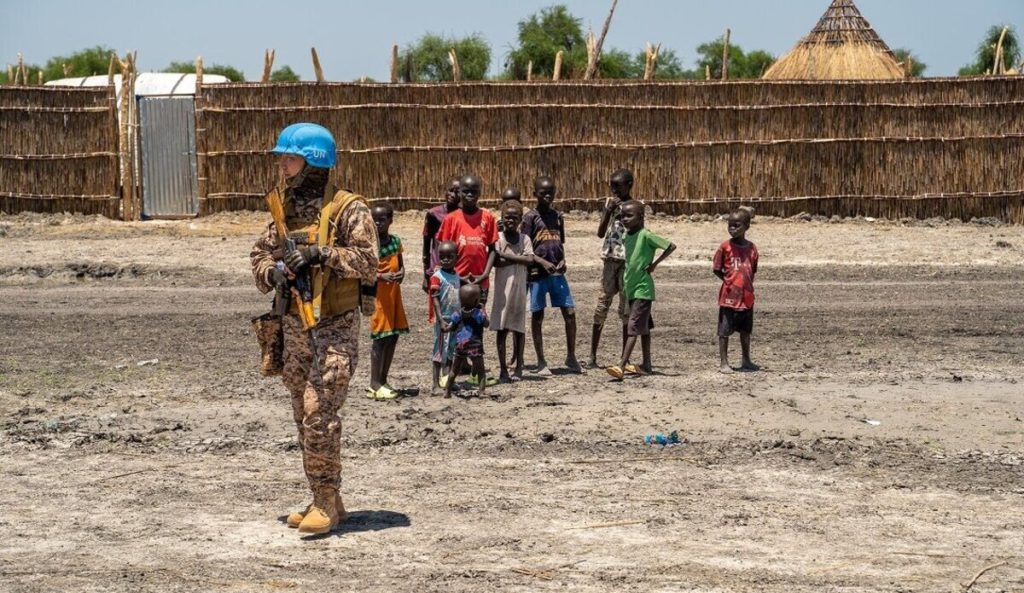Thousands of South Sudanese have been forced to abandon their homes in the Western Equatoria State due to weeks of violence in Tambura and nearby areas, according to the United Nations Mission in South Sudan (UNMISS).
UNMISS reported on Friday that “calm” had returned to the region after the unrest, which had displaced many people, some of whom sought refuge near a temporary UNMISS base.
“We have been hiding in the bush for nearly two weeks,” said Monica Zeferina, who fled the violence in Tambura. Speaking to peacekeepers during a patrol, she added, “We don’t know who these armed men are, killing our people… We cannot leave because we have no transport to take our children to safety. It’s a very difficult situation for us.”
Colonel Shams Sittique, a Senior Military Observer with UNMISS, stated that the mission was continuing to monitor the area and work towards containing the violence.
In Northern Bahr el Ghazal State, meanwhile, political parties and civil society organisations have committed to an “action plan” aimed at holding free and fair elections in two years.

UNMISS facilitated a three-day Political Parties’ Forum in Aweil, bringing together eight political parties and seven civil society groups. The forum concluded with the signing of a plan to establish “an inclusive, secure, and participatory civic and political space” in preparation for the 2026 elections.
“Now more than ever, an open civic and political space is crucial,” said Guang Cong, UNMISS Deputy Special Representative of the Secretary-General. “This ensures that civic and political actors can freely assemble, register parties, access media equally for campaigning, and hold rallies, meetings, and other activities without obstruction.”
South Sudan‘s government had previously announced in September the postponement of elections initially planned for December 2024, citing the need to complete essential processes such as a national census, drafting a permanent constitution, and registering political parties.
The new election date has been set for 22 December 2026. This marks the second delay since the country’s independence in 2011, further extending the transitional period that began in February 2020.


